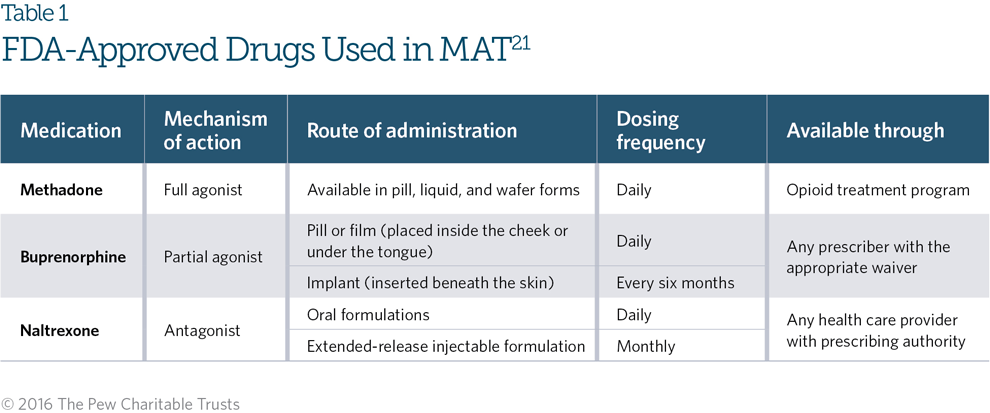Opioid addiction can be treated
Opioid addiction is a chronic disease, like diabetes or heart disease, meaning there is no cure. But addiction can be managed, and people with addiction can, and do, recover. With the care of doctors and trained professionals, treatment helps people with opioid addiction stop using opioids, supports them through withdrawal and cravings, and helps them move away from other harmful behaviors. Without treatment and recovery, addiction can worsen and result in disability or premature death.
Treatment for opioid addiction may include medication
Like other chronic diseases, treatment for opioid addiction may include the use of medication alongside counseling and other support – this is referred to as medication-assisted treatment. There are three main choices for medication to treat opioid addiction: methadone, buprenorphine and naltrexone.
These medications, which are FDA-approved, work to stabilize brain chemistry, block the euphoric effects of opioids, relieve physiological cravings, and normalize body functions. They have been proven to be safe and cost-effective, and are recognized as evidence-based approaches for the treatment of opioid addiction by the ASAM, SAMHSA, National Institute of Drug Abuse (NIDA), and the National Institutes of Health (NIH).
Because of its effectiveness, medication-assisted treatment is often the best choice for opioid addiction.




